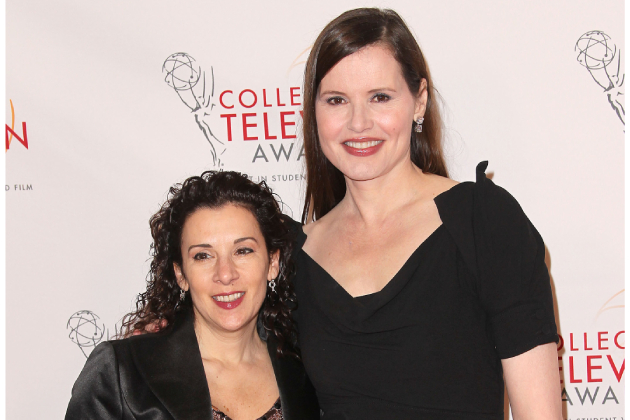Formats that delve into tough subjects often have the opportunity to bring those issues to the masses, but figuring out how to deliver those stories and get advertisers on board can be a bit of a quagmire, according to unscripted heavy-weights attending Realscreen West’s “Trendwatch: Taking on the Tough Stuff” panel on Wednesday (June 6).
Joining moderator Jane Root, CEO of British-based prodco Nutopia in the session were Elaine Frontain Bryant, EVP and head of programming at A&E; Avi Armoza, CEO of Armoza Formats; Ricky Kelehar, SVP of development at Optomen Productions; and Michael von Würden, CEO of Snowman Productions.
For Kelehar, the challenge with factual entertainment content can be figuring out how to get these stories formatted in a way that can be produced and made palatable for mass appeal. He revealed his interest in creating a show about homelessness, but he’s still mulling over which format would work for a primetime audience in this market.
“I think that’s the issue for me – how you package it,” he said, with Frontain Bryant noting the priority needs to be “entertainment first.”
Formats revolving around sensitive topics like Amorza Formats’ heart-warming docuseries Back to Life, which follows patients as they wait for a lifesaving organ transplant, require a high level of empathy when portraying them to an audience, due in part to the abundance of time spent with these characters. It’s only natural that a connection occurs between the participants and the crew following them.
Television veteran Armoza said he would only show the stories with positive endings, which A&E’s Elaine Frontain Bryant agreed with. “Could you imagine if you lost your child and then you’re going to make an one-hour film about it?” she said.
“When you’re in with people during the most intense moments of their lives, I think you owe that back to them, that respect and dignity.”
Kelehar noted he was in a similar situation on a show for the BBC in which some of the participants were dying, and ultimately did die, and that some families wanted their stories covered while others did not. The delicate situation, he said, requires a conversation to happen between the production company, the broadcaster and the family.
When asked whether any stories should be off-limits, Danish producer von Würden (whose productions range from the original Married at First Sight to the new State of Hate) said he doesn’t want to see limits, period. He does, however, understand the challenge of working in factual entertainment and creating content for the broader audience. Should producers get the right formula to work, he said, the opportunity exists to generate a discussion on a subject that might not normally happen.
Frontain Bryant added that even though programming has to be entertaining to draw an audience, it’s about how tough topics are approached, and ensuring they aren’t trivialized.
Still, getting the entertainment balance right in such programming is crucial, both from an audience perspective and from the viewpoint of both advertisers and networks. As the panelists maintained, the schedule needs a fair share of light to balance the dark.
(Photo by Rahoul Ghose)






























